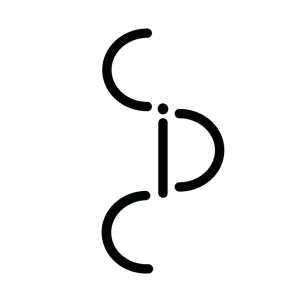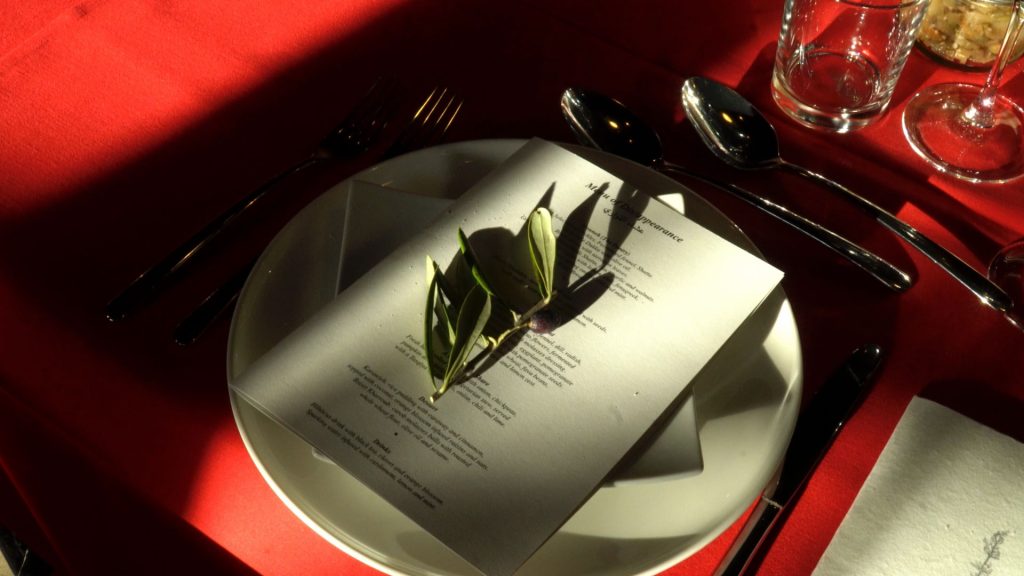Introduction
An exploration of colonial language to modify and inspire innovative forms.
A growing conversation is taking place in Belgium about the decolonization of artworks, images and stories. A highly topical issue, it invites us to reflect on the role of artists in a community. The capacity for resistance and resilience of artistic practices in a changing world. The political role of new forms.
To the urgent need to create a dialogue between today’s artists, the political form of their work and the public.
For many years, SoundImageCulture, SIC has been developing audiovisual works at the crossroads of borders and languages, supporting and organizing a growing community of artists.
Today, we’d like to create a shared space for artists and audiences to reflect together on representation and politics, on the aesthetic choices artists make and their consequences today.
Through film, scripted dialogue and dinner-performance, we’ll contextualize works and their forms beyond a simple analysis of thematic or socio-political narratives.
Together, we’ll reflect on how the artist’s critical thinking manifests itself in form. Behind the aesthetics of the works, we will find the critical thought immanent to the artist’s position in today’s world.
Addressing these issues means looking at the spoken word around artworks, a necessary link and an important part of the process, especially in its relationship with the public.
Drawing on the experience of SIC’s work in the development of artistic works, this program extends this expertise in the form of a public program of reflection.
Esthétiques du Politique/Aesthetics of the Political offers two days of exchanges in various forms in the BOZAR space, on December 6 and 7.
Experiences, both collective and particular, will be articulated through debates, screenings and performances, offering us the chance to designate common articulations.
Works organized along thematic lines will be presented to the public, followed by a discussion with the artists and the audience. For each event, we’ll be inviting international practitioners to join Belgian artists, including those who have previously and currently participated in the program.
Program
December 6, 2020 – BOZAR
16h00 – 18h00 – Film screenings and animated conversation
‘When Things Occur’ by Oraib Toukan > 28 mins
‘There are no more images’ by Miguel Peres dos Santos > 14mins
‘Koute vwa’ by Maxime Jean-Baptiste > 28 mins
6:30 pm – 8:00 pm – Lecture followed by a conversation:
Oraib Toukan ‘Cruel Images
8:30 pm – 10:30 pm
Culinary performance – ‘Palestinian Hosting Society’ Table d’hôte by Mirna Bamyieh > 120 mins
December 7, 2020 – BOZAR
17h00 – 19h00 – ‘Odyssée’ by Sabine Groenewegen 70mins
Film screenings and animated conversation
20h30 – 22h00 – Scripted conversation
Politics of the Invitation’ with Ogutu Muraya (remote), participating artists and audience
This session will begin with a skype conversation with Ogutu Muraya about the politics of inviting artists out of Europe, and the need to examine the politics that institutions produce by perpetuating the hierarchies of colonialism.
About the works and artists
(Berlin) Oraib Toukan ‘When Things Occur’ (2017)
Arabic with English subtitles, 28 minutes
‘When Things Occur’ is based on Skype conversations with Gazans who were behind the images that were transmitted from screen to screen during the summer of 2014. The film explores the face of grief and mourning – its embodiment, transmission and digital representation. The film questions how the gaze is channeled in the digital world and how empathy spreads. What exactly is “remote” viewing of suffering? What is the behavior and political economy of the image of war? And who is the “local” in the representation of war?
Since 2011, Oraib Toukan has been researching and creating works based on a collection of 900 reels of film from former Soviet cultural centers in Jordan. Among these films were early productions for former members of the PLO’s Palestinian Cinema Unit. Her thesis examines the issues surrounding contemporary art activism in mining today. She questions the use and representation of the “cruel image”, as well as appropriation practices in post-colonial contexts and archives.
(Netherlands) Miguel Peres dos Santos ‘The are no more images’ (2016) – SIC 2014
Portuguese with English subtitles, 14 minutes
A proposed reflection on a possible link between image and memory; between image and moment; and between image and death. A father, a son and a dead child engage in a monologue built around a moment: “is an image dead?”; “what if an image dies”… “what will happen to memory?
Miguel Peres dos Santos (°1976, Lisbon, Portugal) is an artist who works in a variety of media. With an emphasis on aesthetics, Peres dos Santos reflects on subjects closely linked to archives and memory. His artworks sometimes radiate a cold, latent violence. At other times, a disconcerting beauty emerges. Moments that exist only to punctuate human drama, to clarify our existence and find poetic meaning in everyday life. His works show how life extends beyond one’s own subjective limits, often recounting the effects of global cultural interaction in the second half of the twentieth century.
(Brussels / Paris) Maxime Jean-Baptiste ‘Kouté vwa’ (listen to the voices) – SIC 2018/2019
Creole with English subtitles, 28 minutes
The ‘Kouté vwa’ project is based on Maxime’s father’s participation in a French film “Jean Galmot aventurier”, whose screenplay is based on the character Jean Galmot (1879-1928), as well as the Affaire des Insurgés de Cayenne (1928-1931), a historical event involving the radicalization of the Guyanese people, an uprising, a long trial and finally the release of the accused. Today, Maxime wonders about this colonial representation in which his father was an extra. The project interweaves microhistories specific to the film’s former participants, the descendants of the actual events, and members of Maxime’s family.
Maxime Jean-Baptiste (1993° FR) is a filmmaker and performer based in Brussels and Paris. Having lived in the context of the Guyanese-Caribbean diaspora in France, with a French mother and Guyanese father, his work as an artist sees itself as an exploration of the complexity of Western colonial history, detecting the survival of past traumas in the present. His audiovisual and performative work focuses on portraits (of artists, dancers or members of his own family), using the form of reconstruction to conceive the potential of a living, oral memory. He holds a B.A. in Visual Arts from erg and an M.A. in Media Arts from the K.A.S.K. School of Arts (Ghent, BE).
(London) Sabine Groenewegen ‘Odyssey’ (2018) – SIC 2015
Dutch, Sranan Tongo, English with English subtitles, 71 minutes
Two indefinite intelligences intercept terrestrial images of humans living in an area known as the Netherlands. The researchers exchange their findings via a visual feed, in an attempt to understand the appearance of extraordinary apparitions. The viewers’ efforts to understand an enchanted human world are interrupted by another signal that imposes itself on the ongoing investigation, leading to a play with the logic of meaning-making. Through a combination of found imagery, science fiction and poetry, Odyssey interrogates the visual rhetoric of whiteness in the specific Dutch colonial project, and evokes questions about the stories we are told, and our possibilities for disrupting them.
Sabine Groenewegen is an artist who works with moving images, collages and immersive experiences. She is currently exploring how the experiences of our ancestors form part of our present and future psychobiological reality.
(Palestine) Mirna Bamieh Palestinian Hosting Society
Dinner Table performance, English spoken, 120 minutes
‘Palestine Hosting Society’ is a living art project founded and directed by artist and cook Mirna Bamieh in which she seeks to examine the culture of food in Palestine that aims to construct and reconstruct their relationships with place, history, society and politics, through food. The research takes place through eating, reading and discussion. The research develops into culinary interventions that unpack social concerns and limitations in the face of contemporary political dilemmas, reflecting on the conditions that characterize contemporary Palestinian communities.
Mirna Bamieh is an artist from Jerusalem/Palestine. She obtained a B.A. in Psychology from Birzeit University in Ramallah (2002-2006). Master of Fine Arts at the Bezalel Academy of Arts and Design in Jerusalem (2011-2013). Ashkal Alwan HomeWorks in Beirut (2013/14). His work attempts to understand and contemplate ever-changing politics, while questioning notions of the land and geography of the in-between time. Her work is more interested in scenarios that take the language of the absurd and the ironic and use it as a tool for political commentary. She is currently developing works that use narrative and food to create situational performances such as: Potato Talks Project, Palestine Hosting Society.
(Kenya) Ogutu Muraya, The Politics of the Invitation
online conversation
Ogutu Muraya (* 1986, Kenya) is an author, director and storyteller. For him, art is an important catalyst for questioning beliefs and keeping alive stories mistakenly told or hidden from the mainstream. His work has been exhibited at numerous festivals, including La Mama (NYC), HIFA (Harare), Afrovibes Festival (Amsterdam) and Spielart Festival (Munich).
Program Curator – Samah Hijawi, Palestinian artist and doctoral candidate at ULB ( SIC 2016).
Always interested in taking the time to reflect together on the relationships between images,
history/stories and the different forms of violence represented, Samah invites us to meet artists who address critical thinking and its relationship to form in the aesthetics of their work. An exploration of colonial language to modify it and inspire innovative forms.

